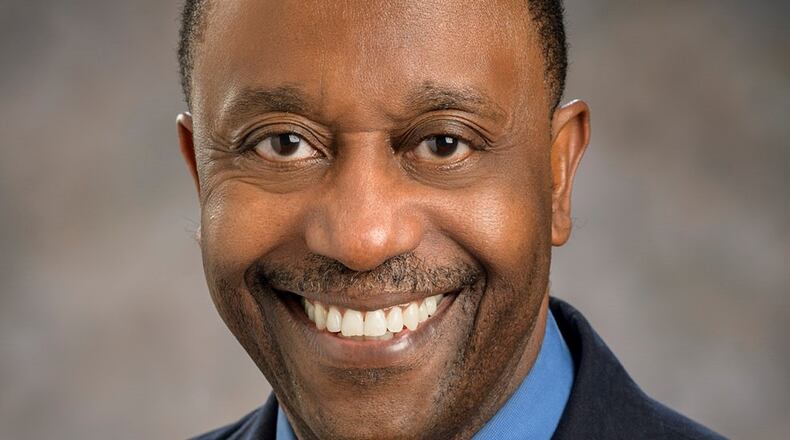LeRoy has been interviewed by dozens of outlets including the New York Times, U.S. News and World Report, Newsweek, Wall Street Journal, Los Angeles Times and the Associated Press.
He’s explained rapid testing kits; discussed differences between the common cold, flu and COVID-19; given background on herd immunity, and encouraged people to get their flu shots. After his interview with Dayton Daily News this past week he jumped on a webinar with Wright State students and faculty about racism in the STEM professions.
“We’re getting a lot of phone calls from a lot of places, asking our opinion or expertise about social problems that are plaguing our community. I think they’re getting a new appreciation of the breadth and education that family physicians have.”
He began his year as president of the Academy of Family Physicians leading 136,700 physicians and medical students. At first he was often asked what his plans were, and he would always say his plans were to remain nimble and respond appropriately to what comes.
“Because that’s really how leadership is defined not by what you plan, but what you do when something unexpected is thrown in front of you,” LeRoy said. “And that’s exactly what has happened. In my wildest imagination. I could not have conceived of a pandemic happening during my year. Then to the racial unrest with Mr. Floyd and all the revelation of health care disparities being revealed with the COVID-19 pandemic.”
The lifelong Daytonian is also staff physician at the East Dayton Health Center and associate dean for student affairs and admission at Wright State University Boonshoft School of Medicine in Dayton, where he also is an associate professor of family medicine.
LeRoy became AAFP president after years of leadership positions, from past chair of the board for Public Health - Dayton & Montgomery County, to co-chair of the Dayton Oregon District Tragedy Fund, to past president of the Ohio Academy of Family Physicians, to former Dayton Foundation Governing Board chair and more.
When he was sworn in September 2019 for his year-long term, LeRoy told a Philadelphia convention center full of physicians that he promised that when a crisis erupts or an unforeseen problem swirls to the surface, that the Academy will step up and lead, “because that’s what you expect and that’s what you deserve.”
Fast forward to March. LeRoy said he remembers vividly a moment when he was getting on a plane in Dayton to go to South Dakota and seeing an email asking him to put out an article on COVID-19 helping their members prepare. That was a Wednesday. Then on Tuesday was the first confirmed case in Washington State.
“By the time I got off the plane, I’d written something and then on Friday we had that to our members to prepare, so we were really on the leading edge of preparing for it,” LeRoy said.
“As primary care physicians, we’re going to be the first people that would have to deal with this thing. People are going to walk into the office and say ‘hey, you know, I’m having this cough and fever, what do you think I should do?” LeRoy said.
The physician group started a website dedicated to COVID-19 information geared toward primary care doctors. It started a rapid response network for members who need answers in a short time frame on a pressing issue. It held an online town hall about people of color having more prevalence of COVID-19. The group has continued medical education on the new coronavirus, and developed information for its members on topics like how to retrain to work in an intensive care unit in times of surging infections.
LeRoy said family physicians are trained to treat a broad range of medical issues that come up from cradle to grave and the pandemic raised awareness that family doctors can fill in in critical areas of need.
“That was happening all over the United States and primary care physicians were being asked to take on other duties,” LeRoy said.
The pandemic created a sweeping shift in how family medicine practices operated. Patient visits plummeted as people stayed home. Many practices that had previously done little-to-no virtual care suddenly were doing most of their visits via phone or video chat.
LeRoy said it’s a balancing act of certain types of care and medical advice able to be given over the phone and providing more convenience for the patient, but other types of information getting lost when there’s no physical exam or in-person conversation.
“I might need to palpate your abdomen to find out where it hurts. I can’t do that over the webcam,” he said.
He also hopes that a long-term change from the pandemic is insurers paying primary care more for their value.
“I think our payers of health care are going to realize ‘wow those primary care doctors can do a whole heck of a lot so why don’t we reimburse them appropriately and encourage them to do some of the things that they can instead of hiring three doctors to do what this one doctor can do.”
About the Author
